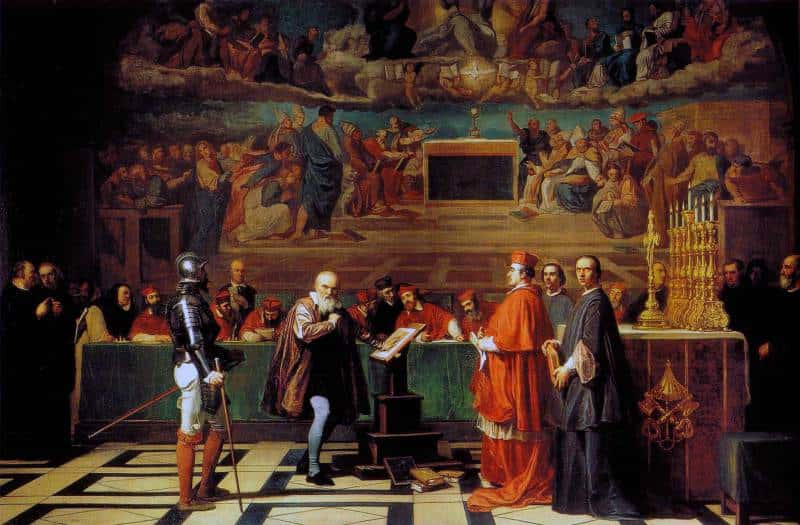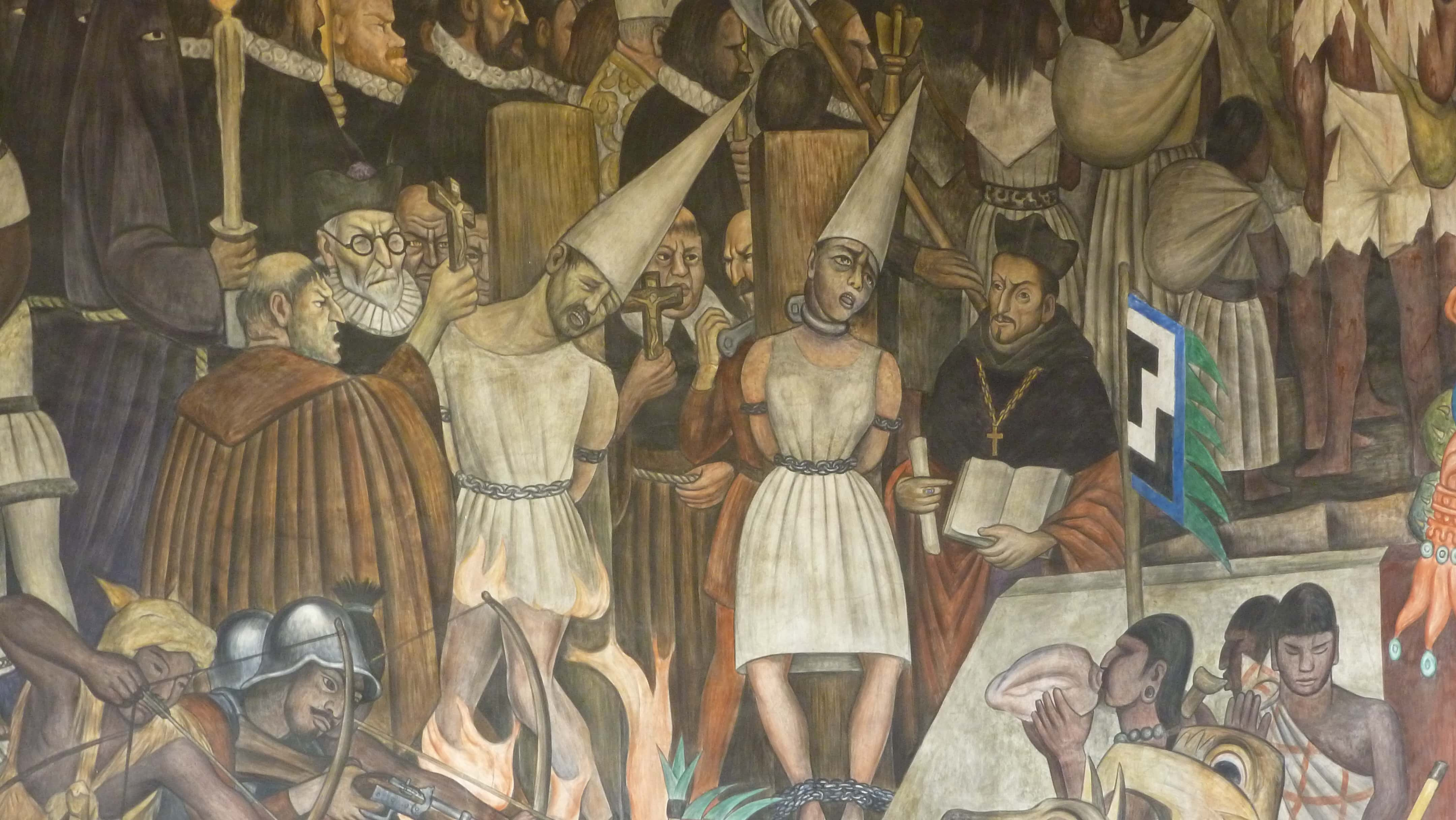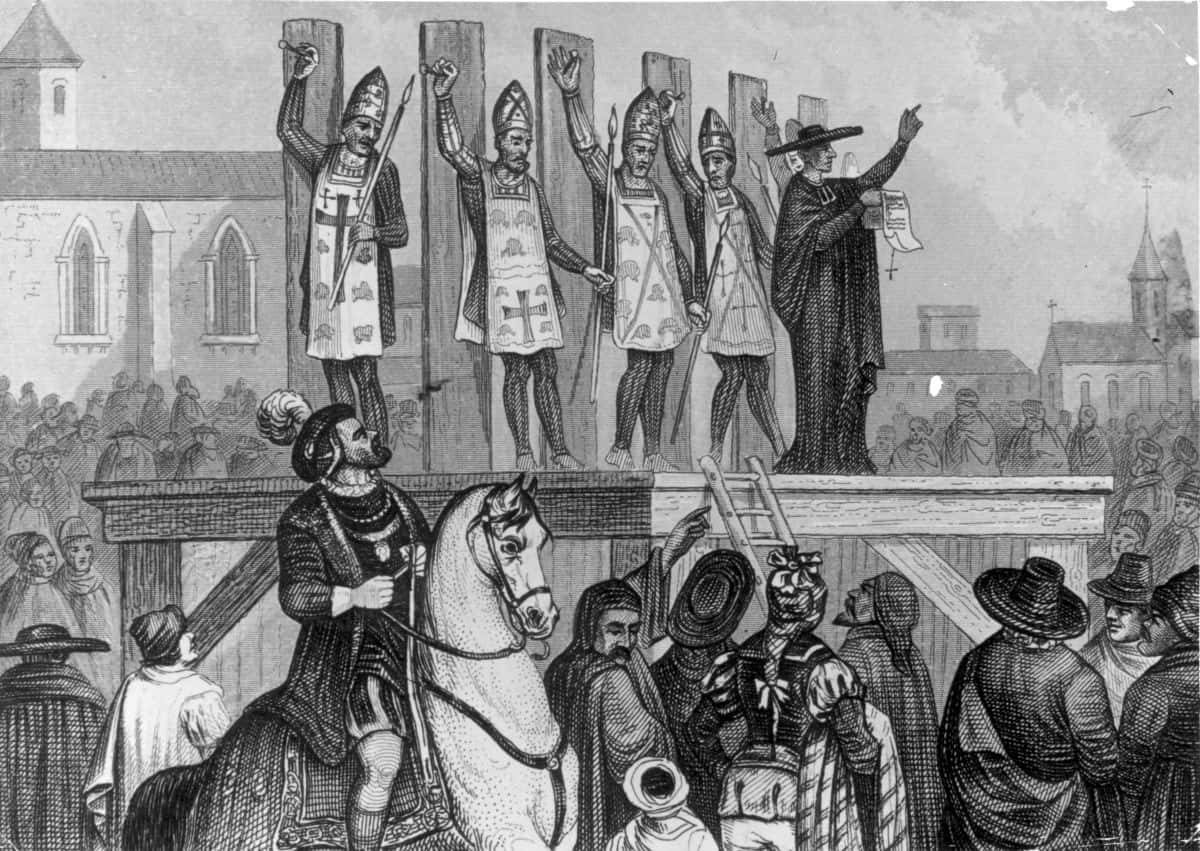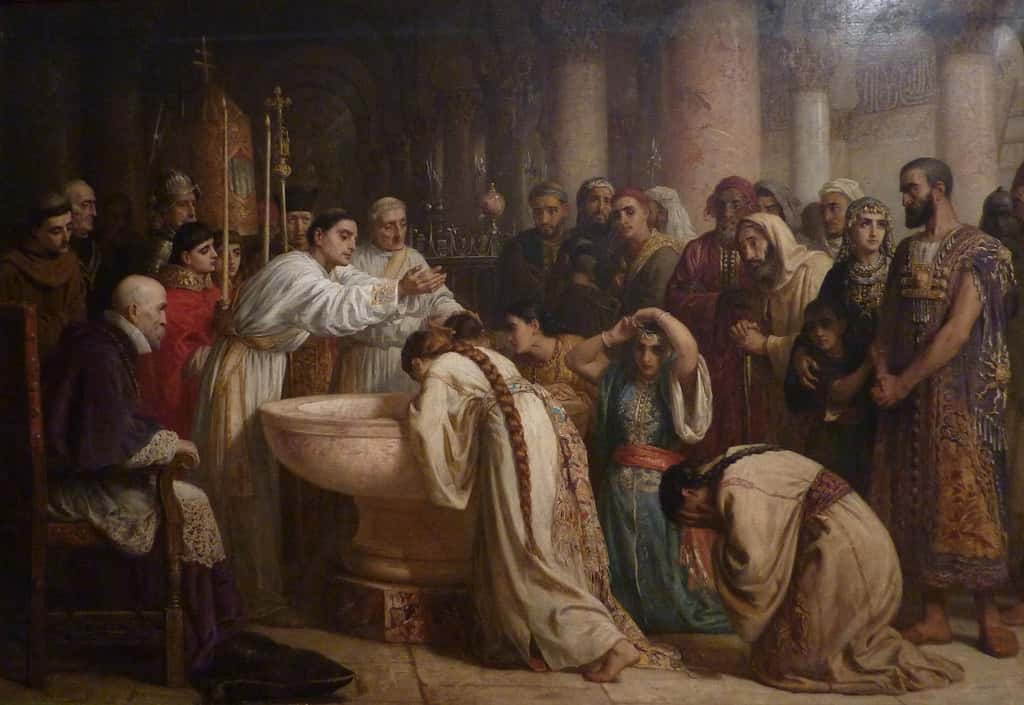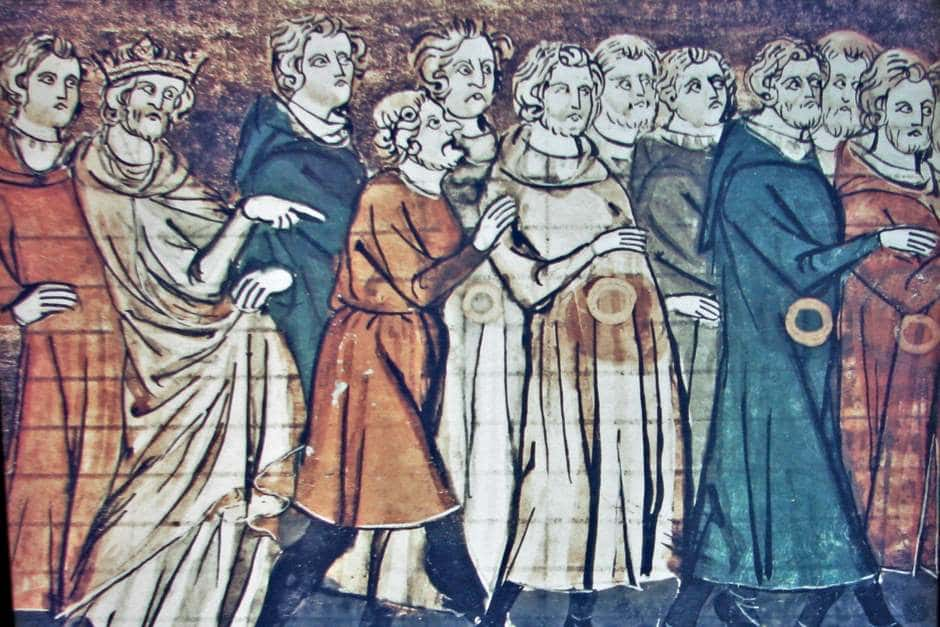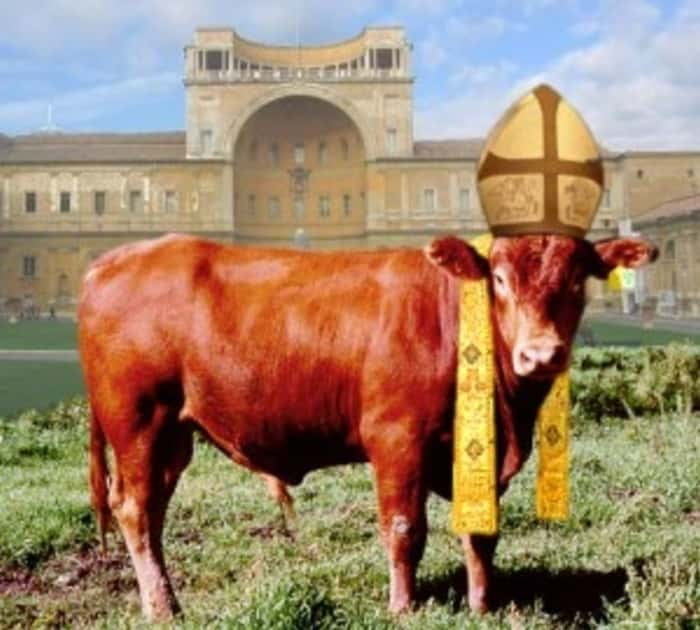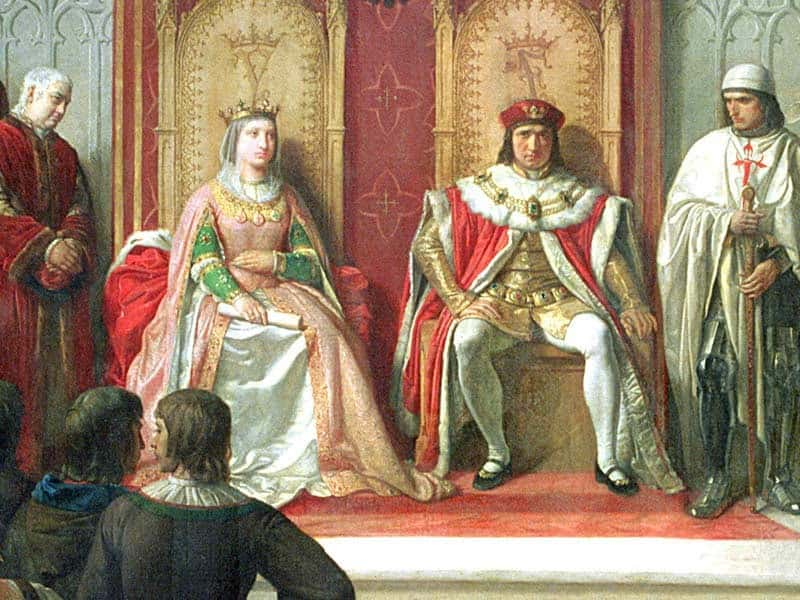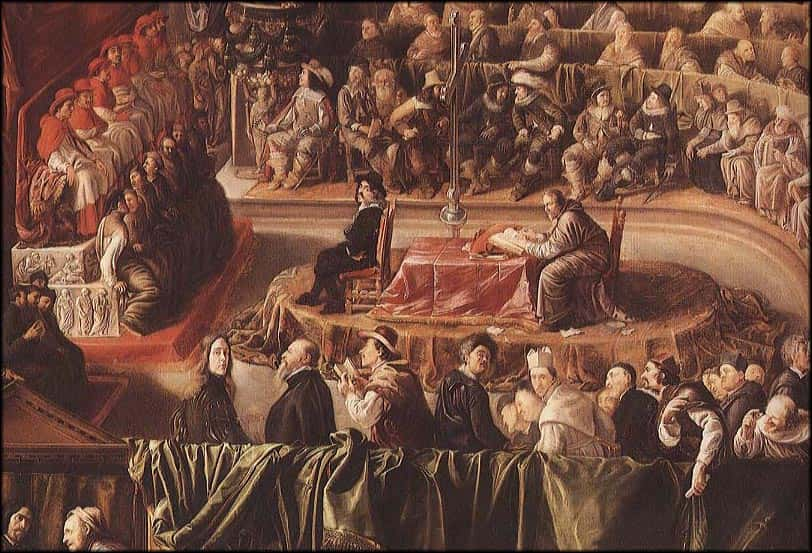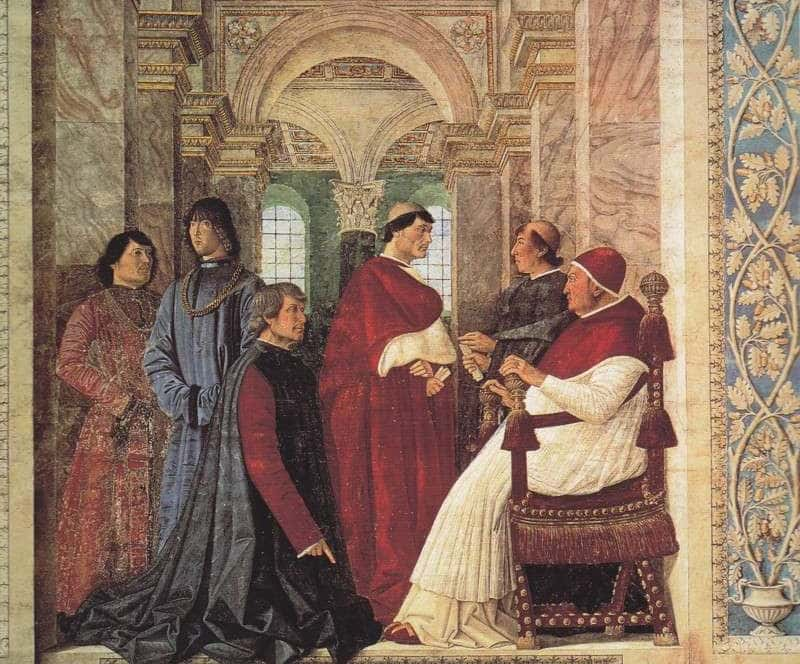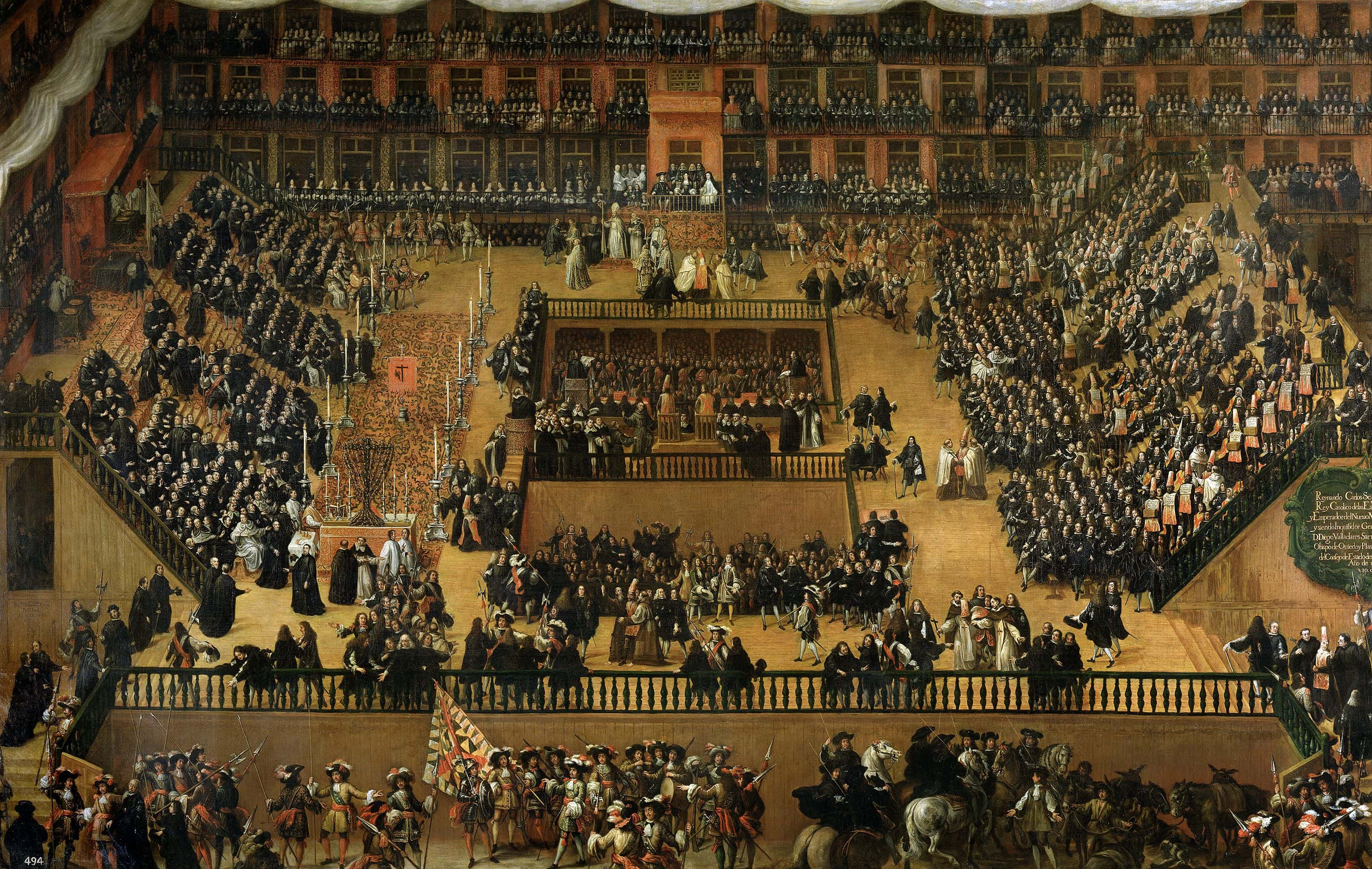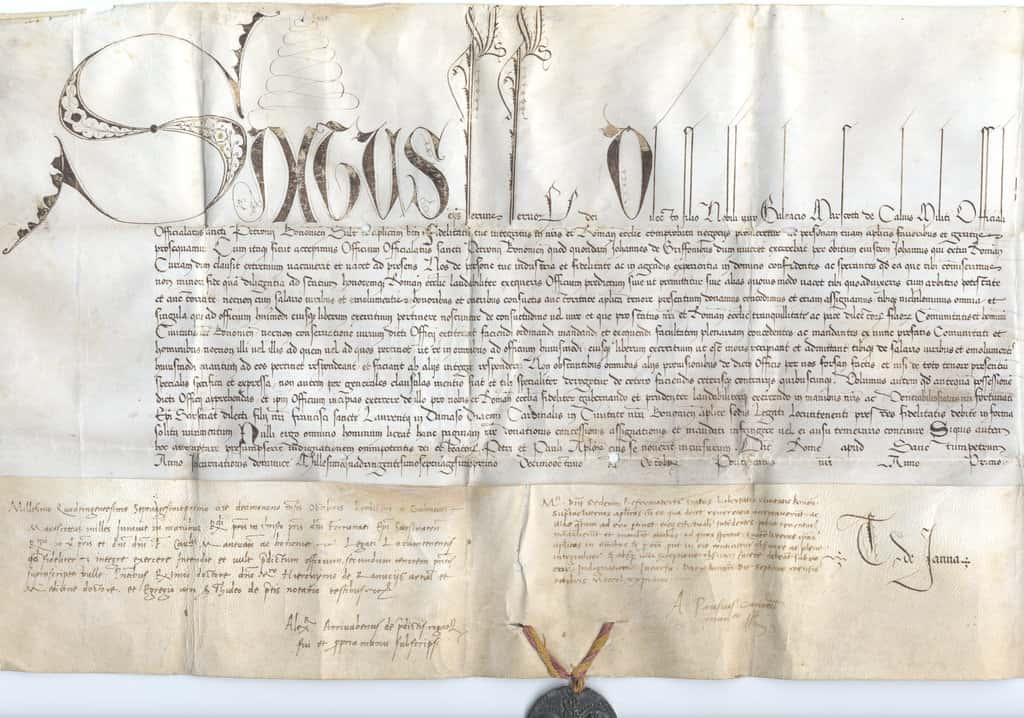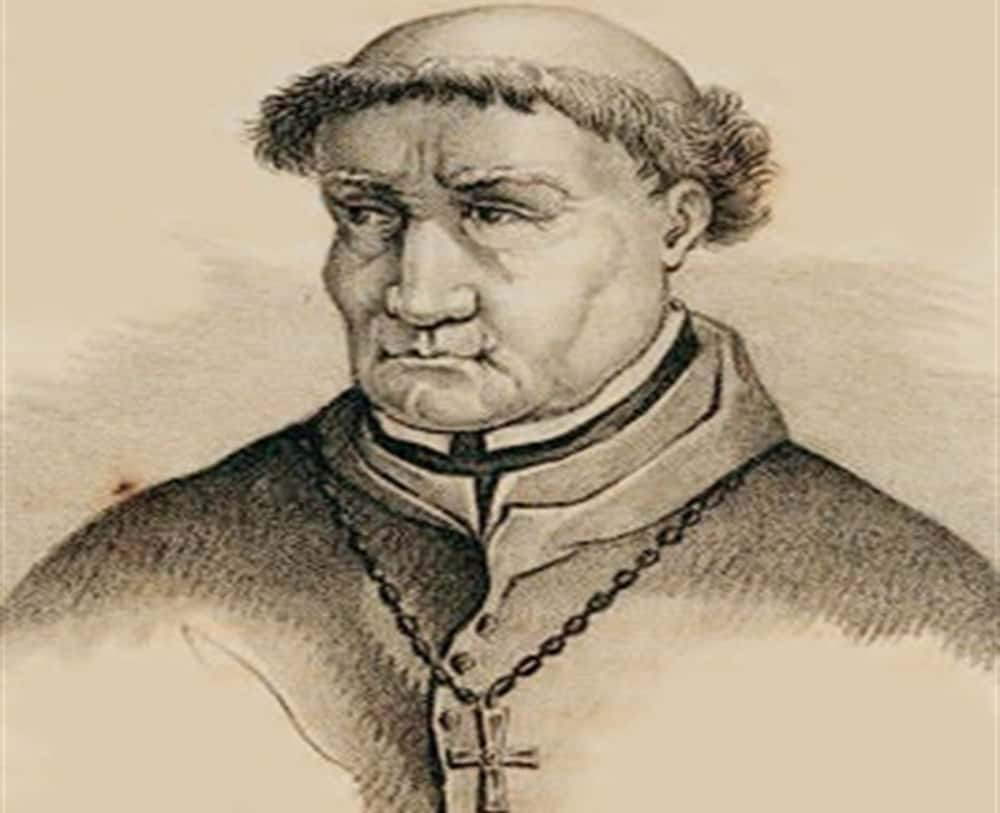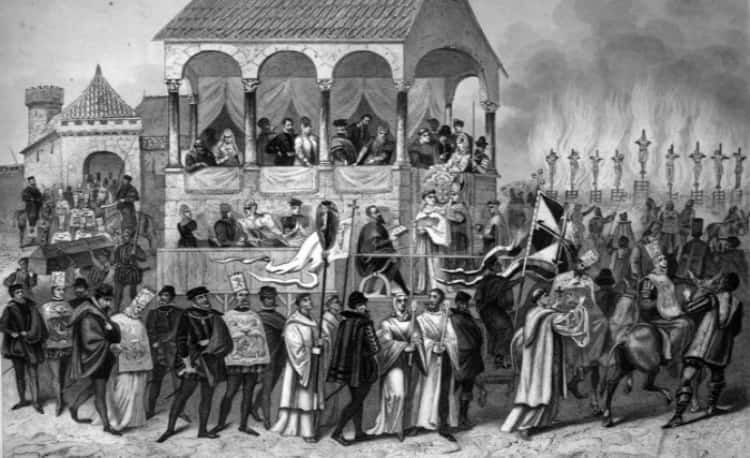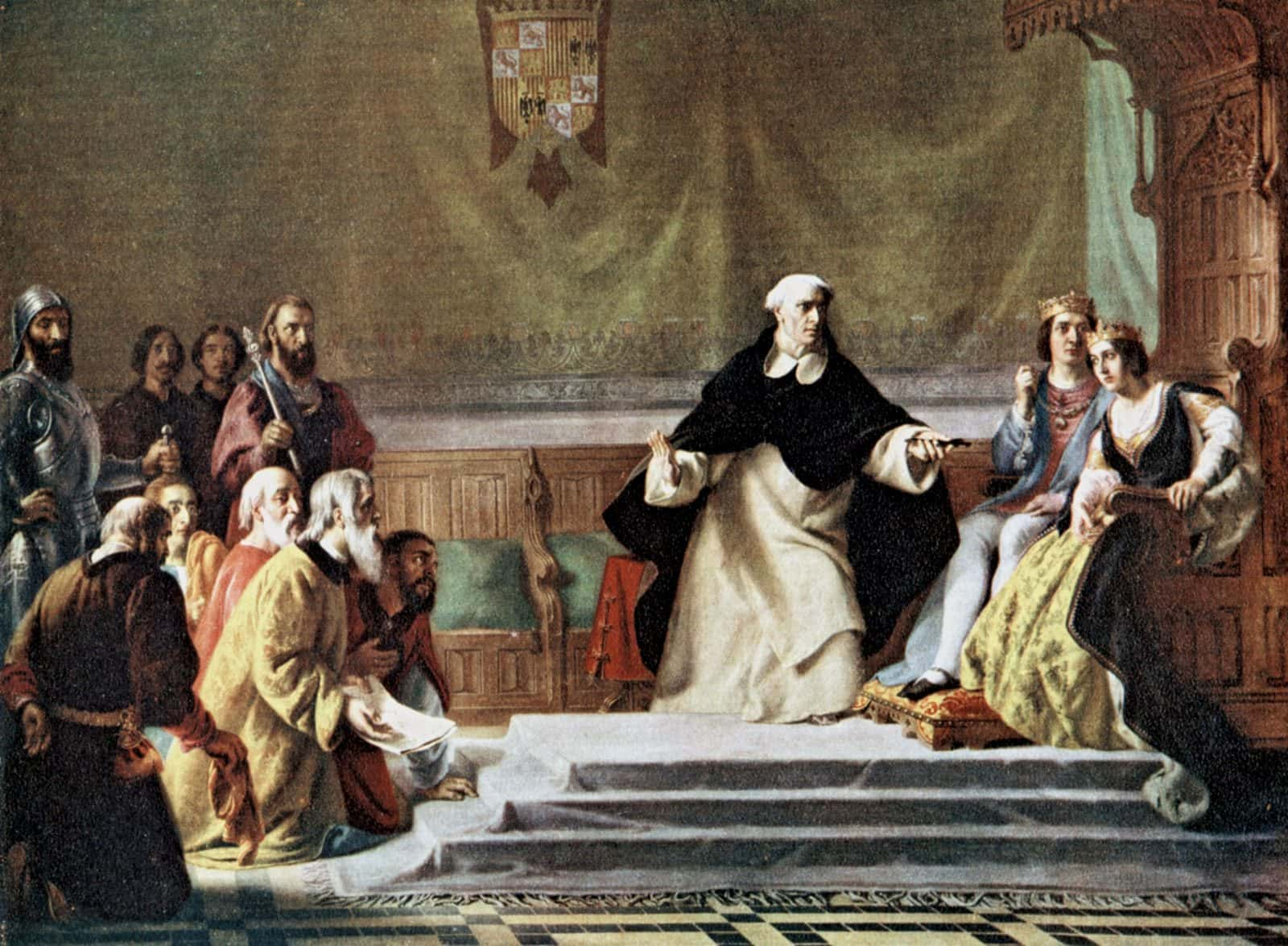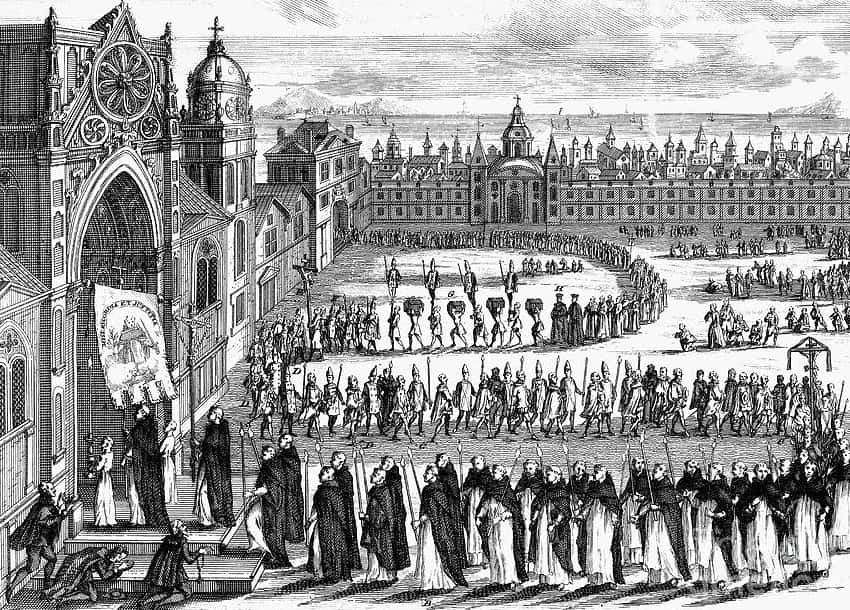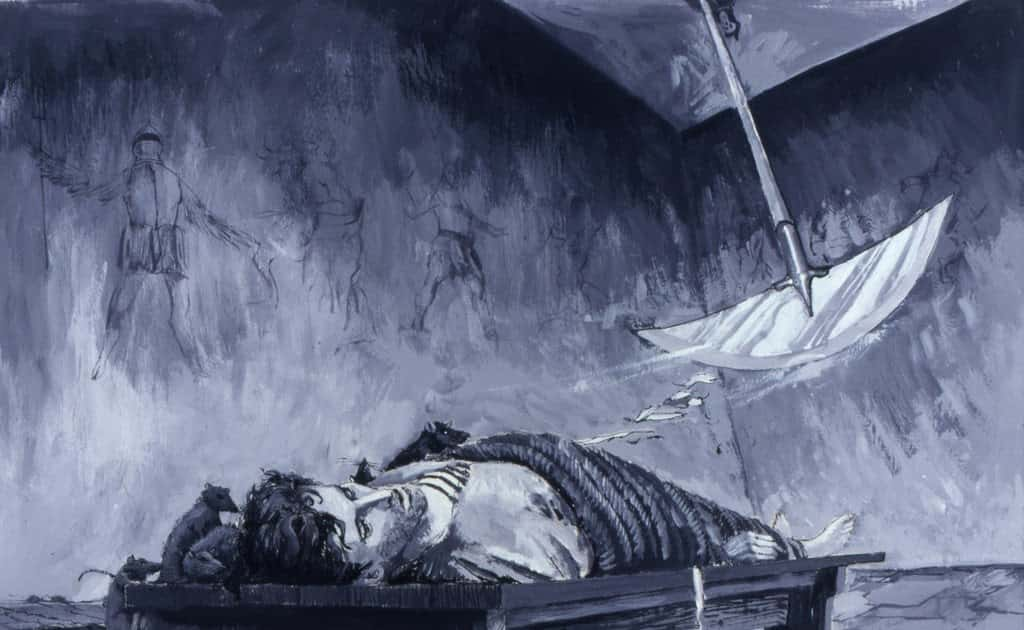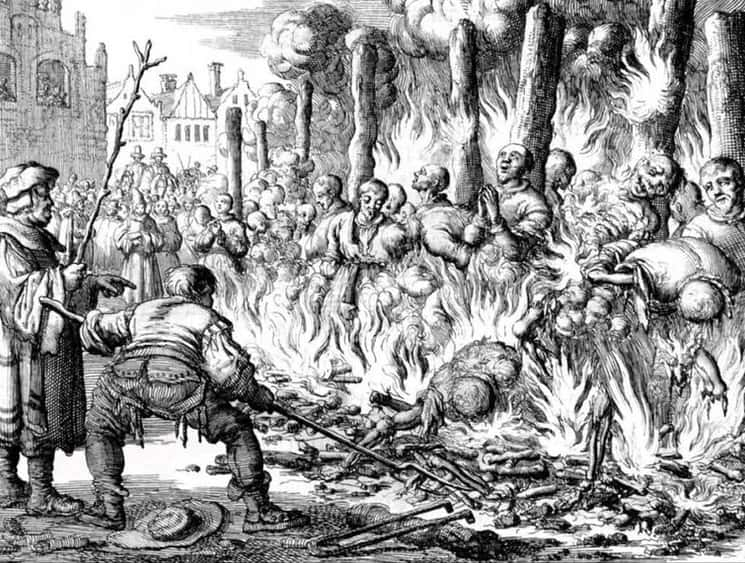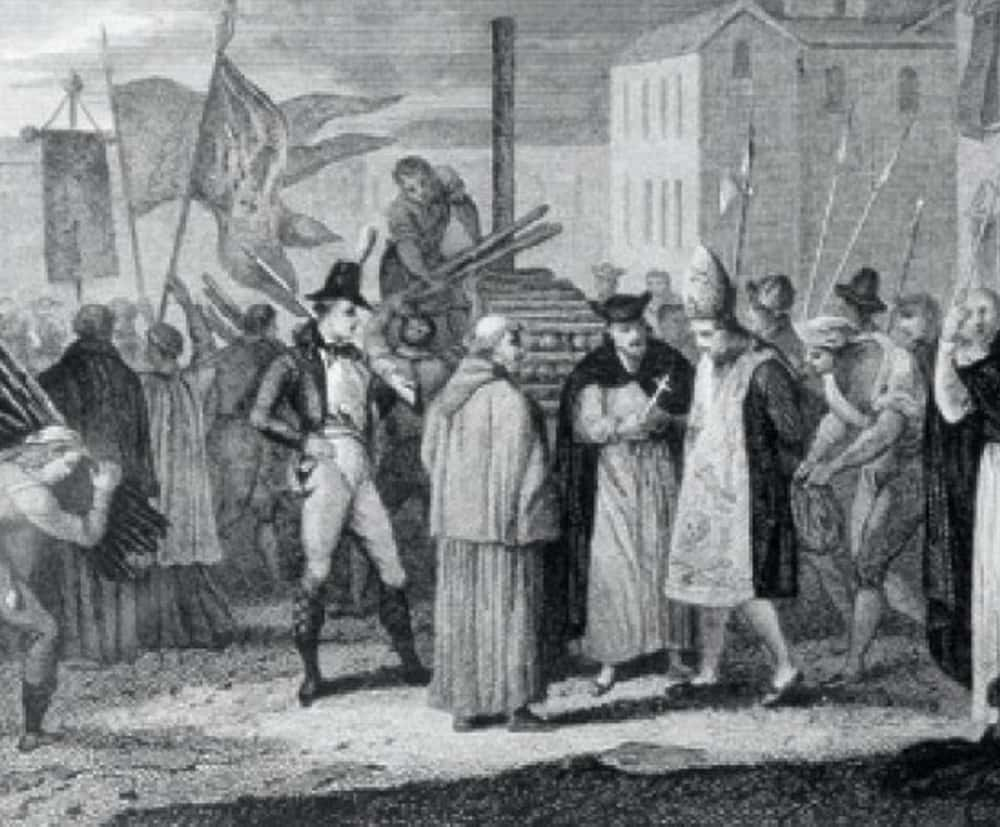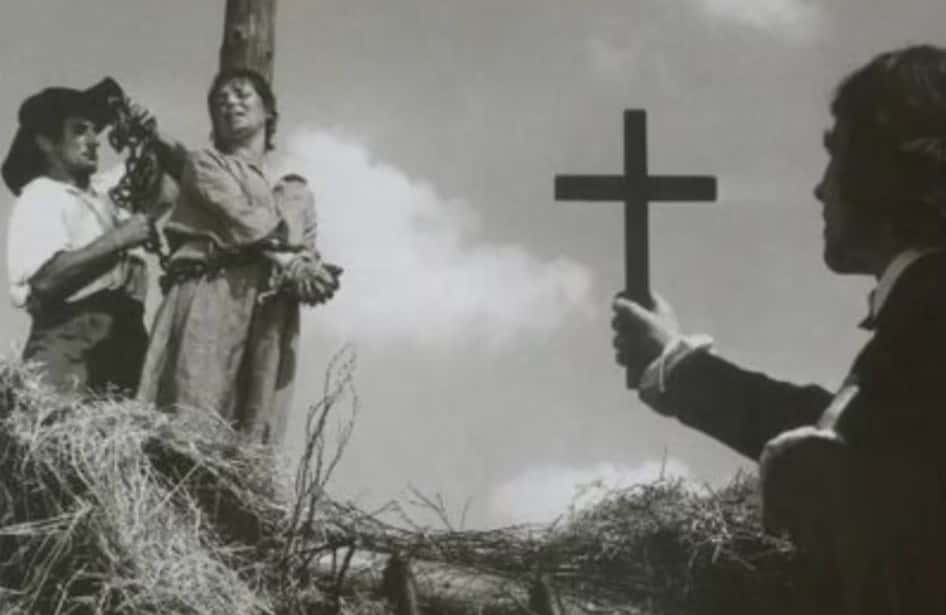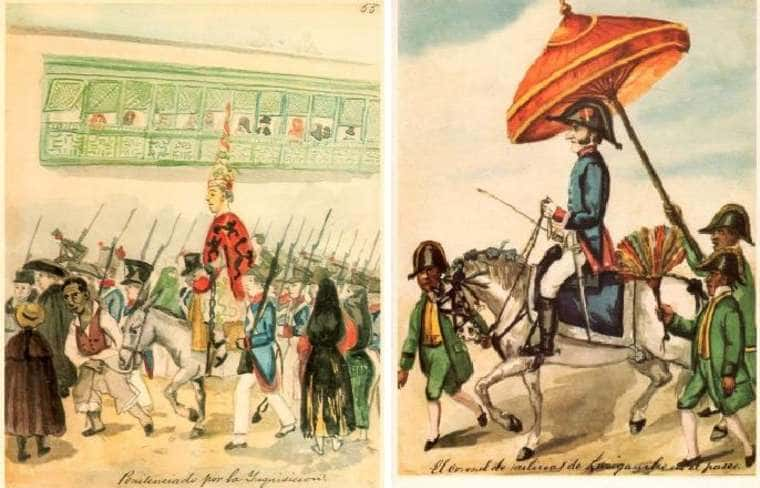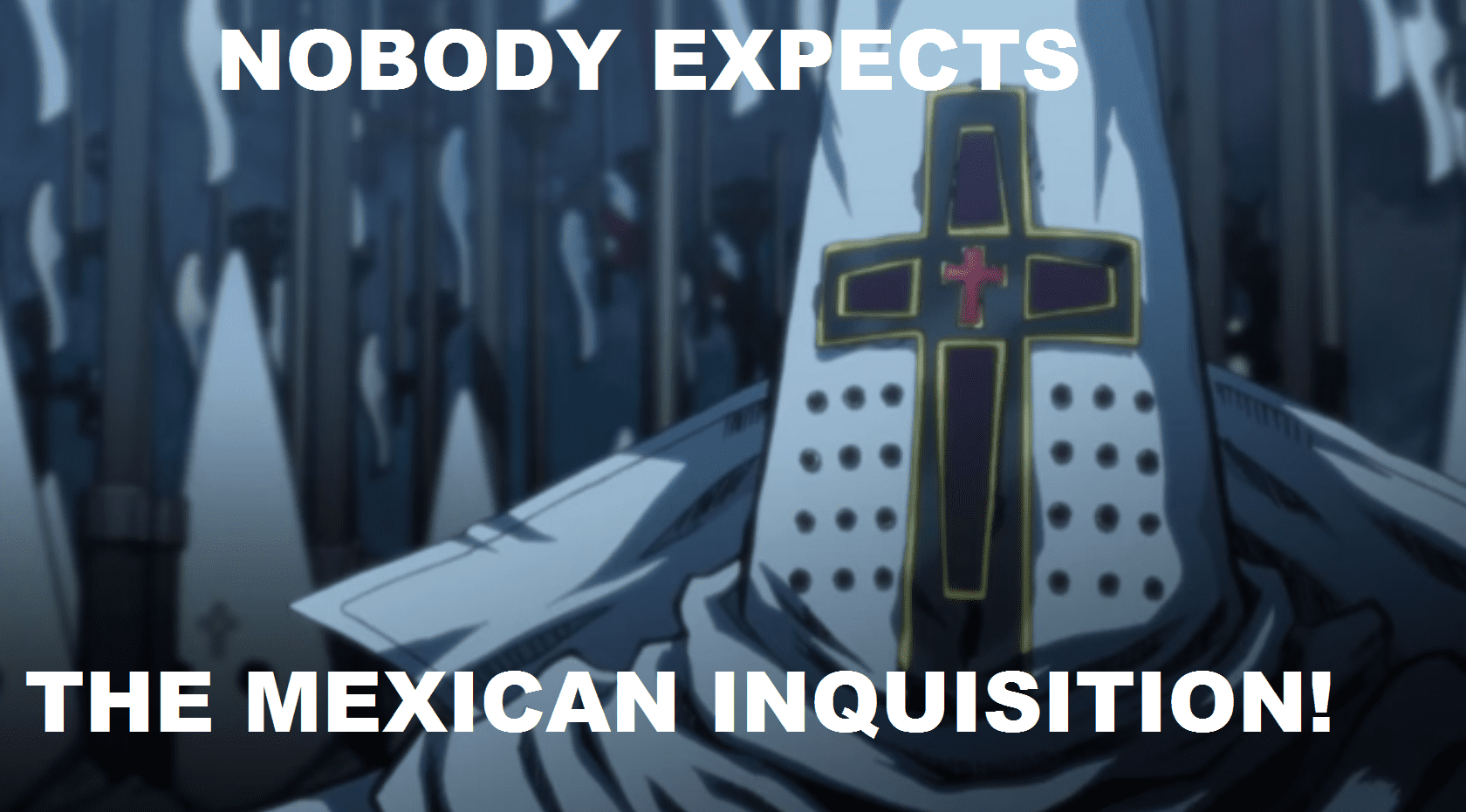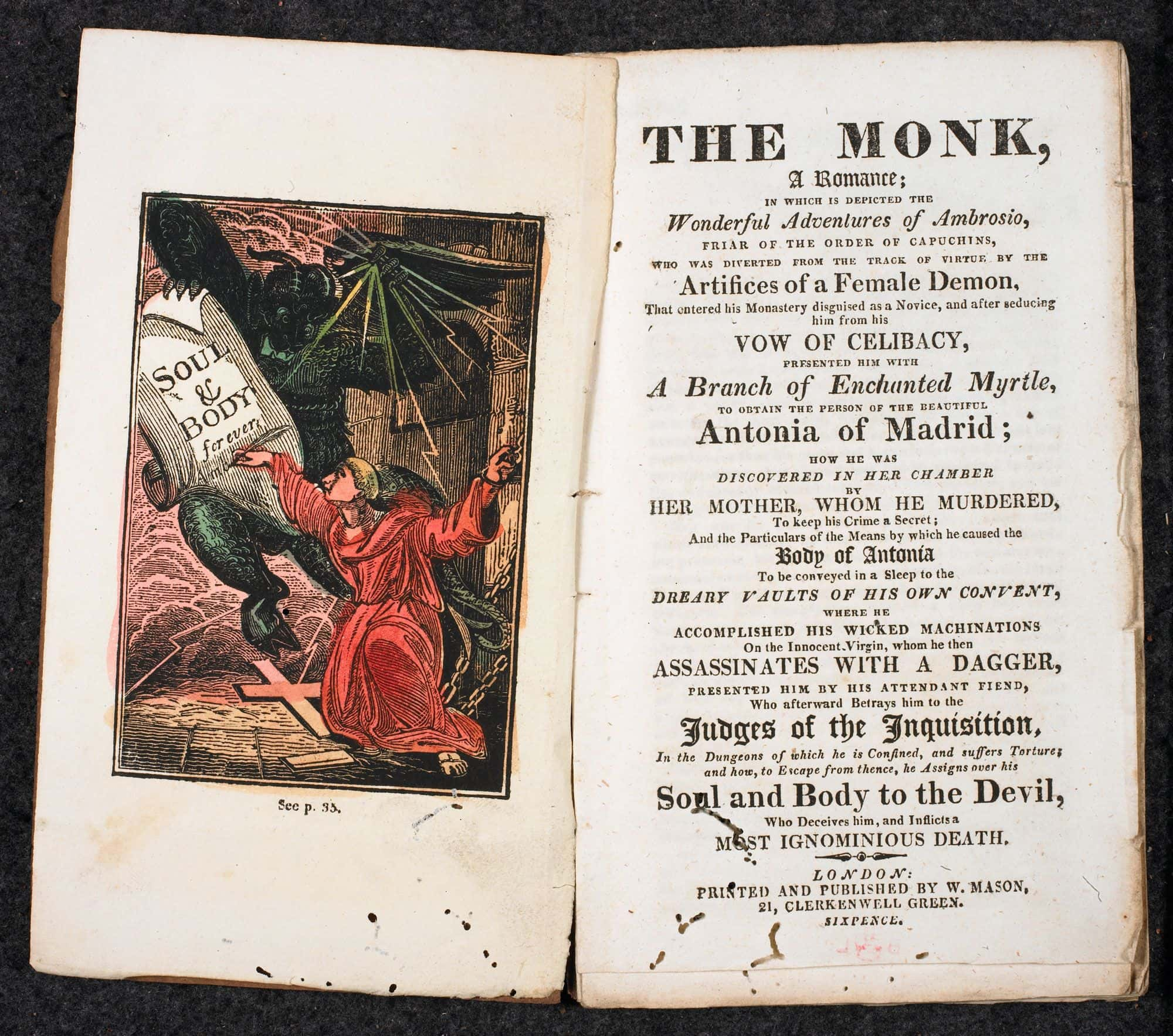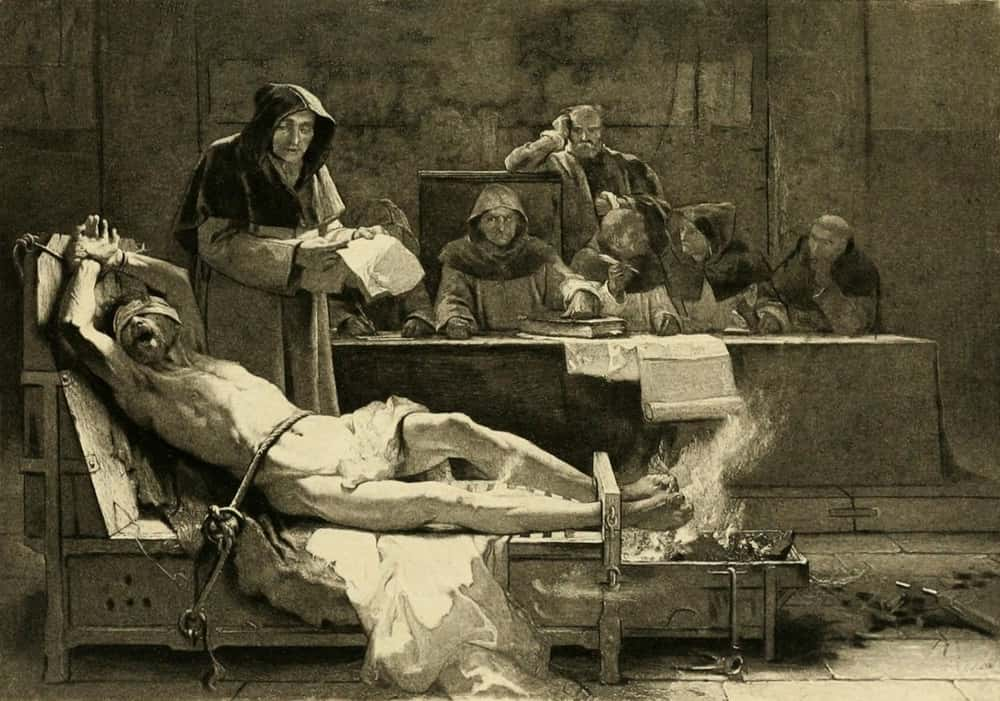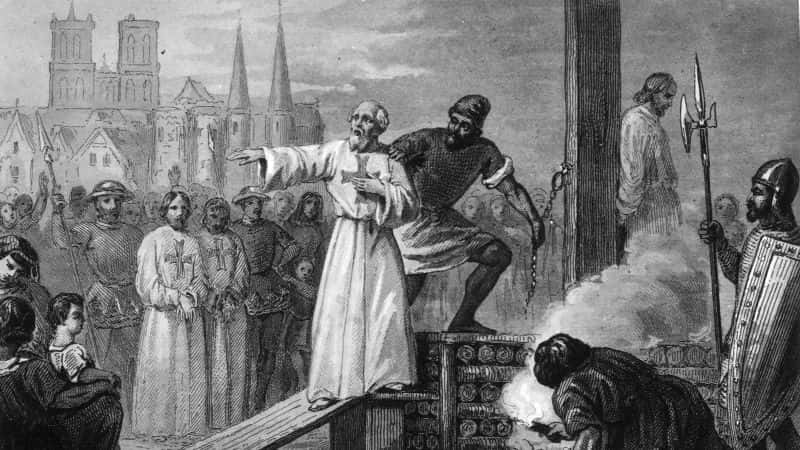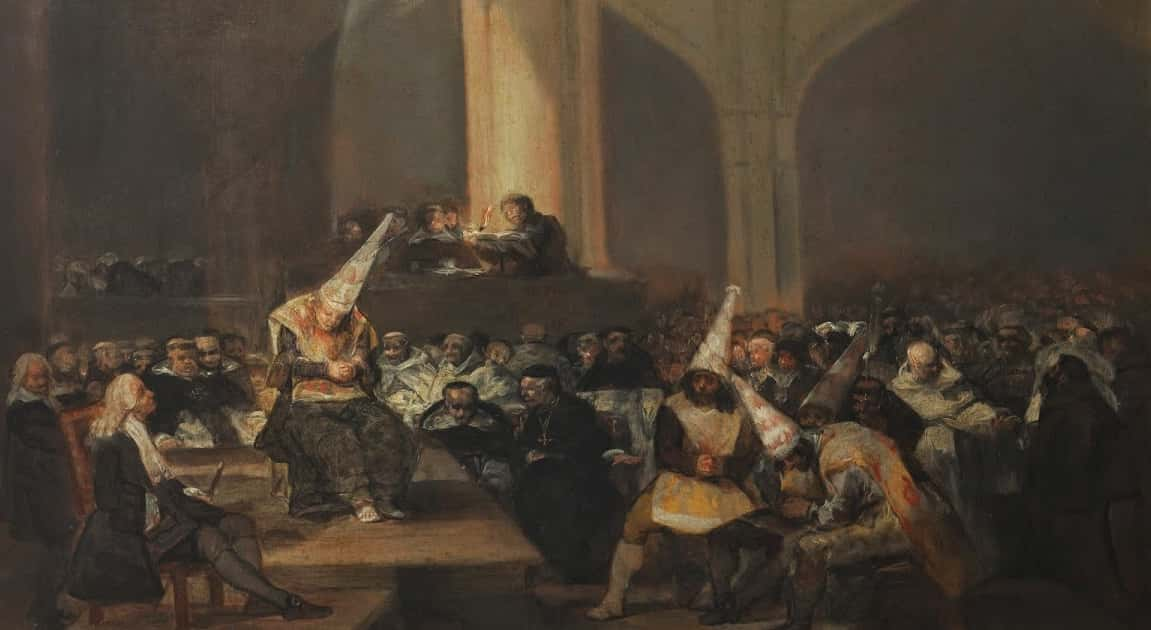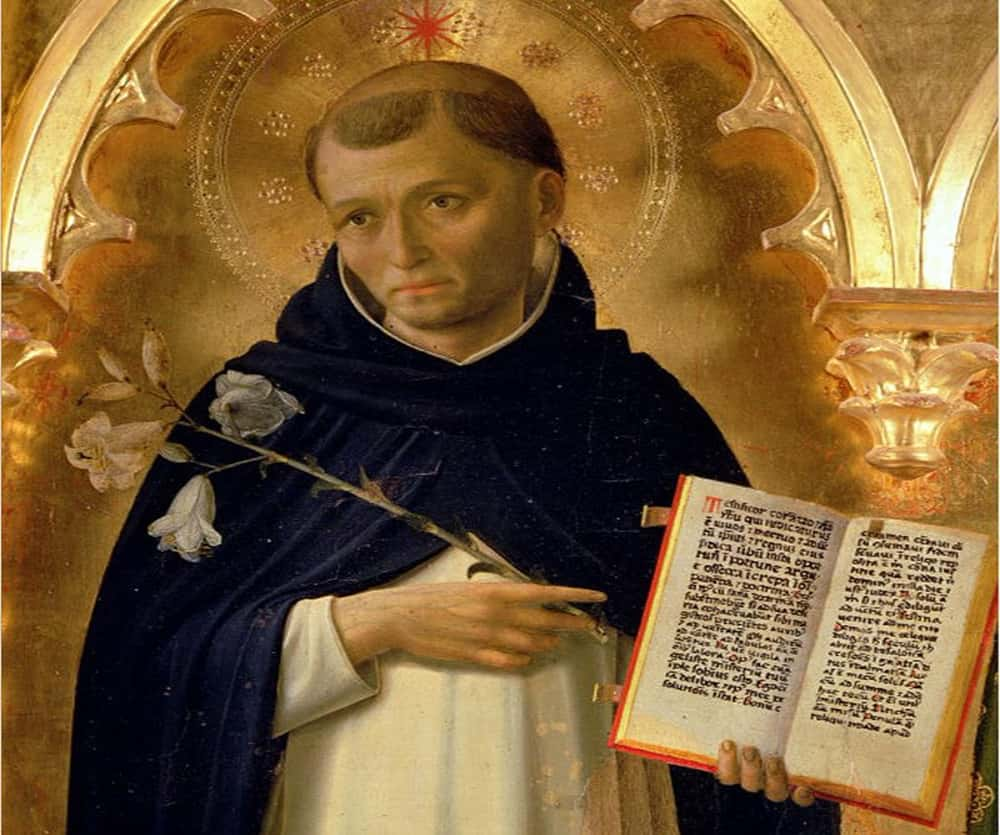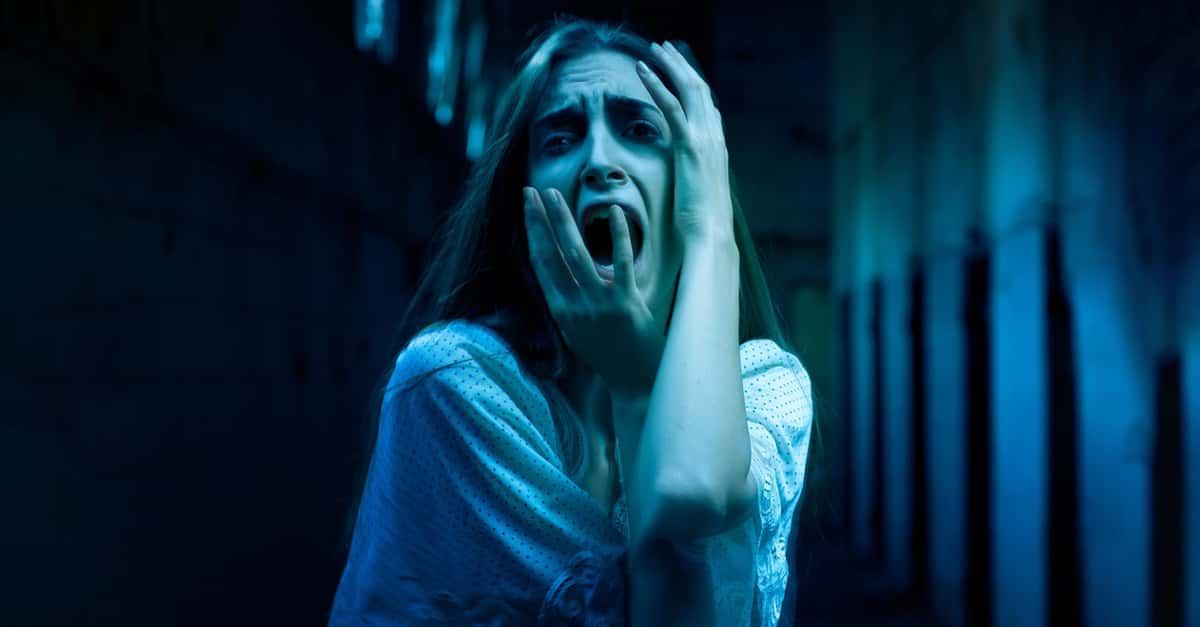Bet you didn't expect this list! The words “Spanish Inquisition” have been a source of terror, drama, and in later years, parody. But who were these people, really? What is true about them and what was made up by their enemies or by themselves? These 43 facts will help pull back the red cloaks and reveal the truth, hopefully without any torture involved.
Spanish Inquisition Facts
43. Holy Trinity
The Spanish Inquisition was part of the wider organization known as the Catholic Inquisition, which also had two other branches: the Portuguese Inquisition and the Roman Inquisition.
42. International Organization
The Spanish Inquisition, despite the name, didn’t just have jurisdiction in Spain. They had authority in every one of Spain’s possessions and colonies as well. These included, at various points in Spain’s history, Mexico, Peru, the Canary Islands, the Netherlands, and Naples, to name a few.
41. Following Precedents
The Spanish Inquisition was first established on the first of November, 1478 AD, but it was hardly the first of its kind. The Medieval Inquisition had first been established in the late 12th century, but it was run by the Pope rather than by Spain itself.
40. Fill in Your Business Plan Here
The Spanish Inquisition, just like the whole Catholic Inquisition, was installed to combat heresy. Spain had spent years driving out the Islamic Moors, who had ruled the Iberian Peninsula for centuries. Not only were their still many Muslims in Spain, they also had a large Jewish population, despite their best efforts to persecute them. However, while these two groups were the largest focus of the Inquisition, any non-Catholic would have had reason to be afraid of it.
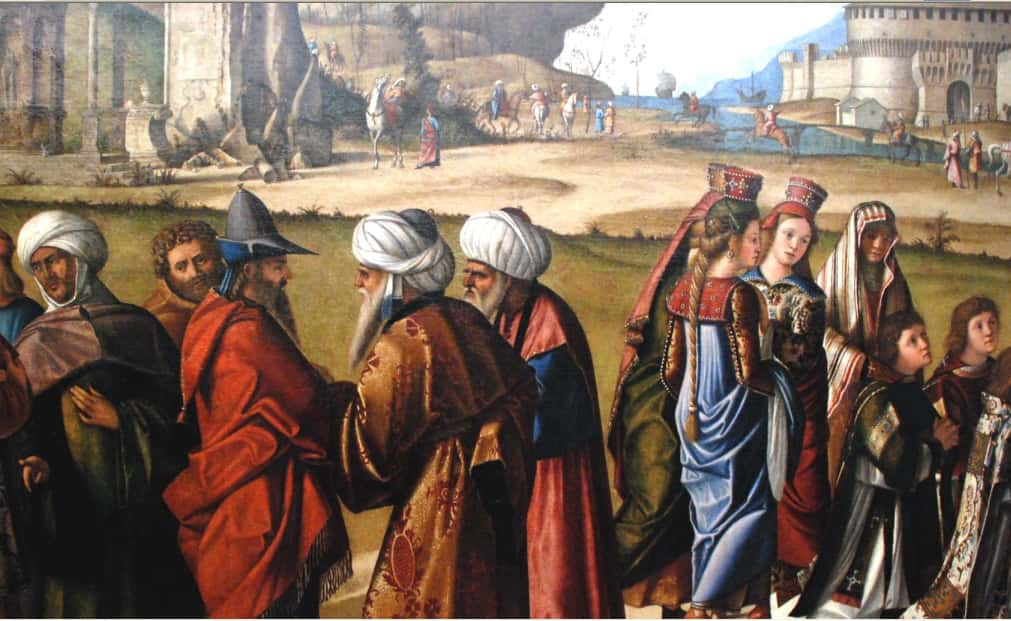 egypt search
egypt search
39. What Are You Hiding?
The original reason for the Spanish Inquisition’s existence was a growing concern that Jewish and Muslim people who had been forced to convert to Christianity were secretly still practicing their original faith. Reports on this phenomenon convinced the Spanish monarchs of the time, Ferdinand and Isabella, to get Pope Sixtus IV’s a-okay to set up the Spanish Inquisition.
38. It Wasn’t Just Us!
It’s worth pointing out that when the Spanish Inquisition was installed, Spain’s anti-Semitic and Islamic mania wasn’t unique at all. Nearly all of Western Europe spent the 13th and 14th centuries jumping on the religious persecution bandwagon. France expelled their Jewish population in 1306, following in the footsteps of England, which had expelled the Jews in 1290.
37. What a Load of Bull
To be allowed to set up the Spanish Inquisition, Ferd and Izzy (as we’ll call the monarchs of Spain from here on out to try and bring some levity to this topic) needed the Pope to issue a papal bull approving it. For those of you who are confused, a papal bull is a decree or charter issued by the Pope, and not a huge bull dressed up in papal robes—but I can dream, can't I?
36. Let’s at Least Try to be Civilized!
Surprisingly, even during its most primitive days, the Spanish Inquisition was intended to be legitimate not only in the eyes of the church, but the law as well (admittedly, those two hadn’t been separated yet back then). King Ferd decreed that inquisitors must have a legal background of some sort.
35. Objection!
The typical trial by the Inquisition allowed for many hearings, where the defendant could give testimony. The process was meticulously documented, with every step and process accounted for (an unprecedented action for the time). The defendant could either provide witnesses of their own to testify in favor of them, or else undermine and prove the witnesses of the prosecutors to be lying or wrong.

Sign up to our newsletter.
History’s most fascinating stories and darkest secrets, delivered to your inbox daily. Making distraction rewarding since 2017.
34. A Convert’s a Convert
Interestingly, the people who angered and alarmed Spanish Catholics the most weren’t the non-Catholics themselves. Rather it was the people who actually had converted that Catholics were worried about. These conversos were often suspected of having only converted to save their skin (a reasonable assumption given what non-Catholics were faced with daily). Surprisingly, Pope Sixtus, the head of the Catholic Church, had a much more moderate view of newly converted Christians, and when he heard of how they were being treated in Spain, he voiced his concerns.
33. Certainly Not an Act of God
Whenever the Spanish Inquisition had decided the punishment of an accused person on trial, they carried out the final step of the tribunals: an auto-da-fé, which translates to "act of faith." The guilty party was paraded before the public, a mass prayer was said, the sentence was read aloud, and then carried out. The worst-case scenario was death by burning, as most of you already knew, no doubt.
32. Second Thoughts?
Pope Sixtus IV issued the first papal bull which allowed for the Spanish Inquisition to exist. Before he did that, however, he had to be pressured into doing it by ol' Ferd, who threatened to withdraw his military support of Rome. Sixtus IV took issue with some of the Spanish Inquisition’s plans for methods, and even issued a papal bull to stop the Inquisition. He was forced to withdraw it, and instead, he issued the papal bull of November 1, 1478.
31. Who’s in Charge Here?
In 1482, Ferd and Izzy nominated the Dominican monk Tomás de Torquemada for the position of Grand Inquisitor. Pope Sixtus approved this appointment, and de Torquemada became the first (and arguably most famous) Grand Inquisitor in the history of the Spanish Inquisition.
30. Reign of Terror?
Torquemada oversaw the Spanish Inquisition for fifteen years until his death. It was he who expanded the fledgling organization into a system with 24 Holy Offices in Spain. However, rumors of his death toll have been exaggerated. While some historians attribute 2,000 deaths to Torquemada, they get this number from Queen Isabella’s secretary, Hernando del Pulgar. Pulgar had written that 2,000 people were executed during the Queen’s entire reign, which continued for years after Torquemada’s death. That being said, it's hard to say that Torquemada was a great guy.
29. And Get That Fiddler Off That Roof, Too!
Torquemada used his favor with Ferd and Izzy to push through legislation to finally get rid of Spain’s Jewish population once and for all. The two monarchs’ proclamation in 1492 gave the Jews a simple choice: convert to Christianity or get out of Spain. More than 160,000 Jews were exiled as a result of that law.
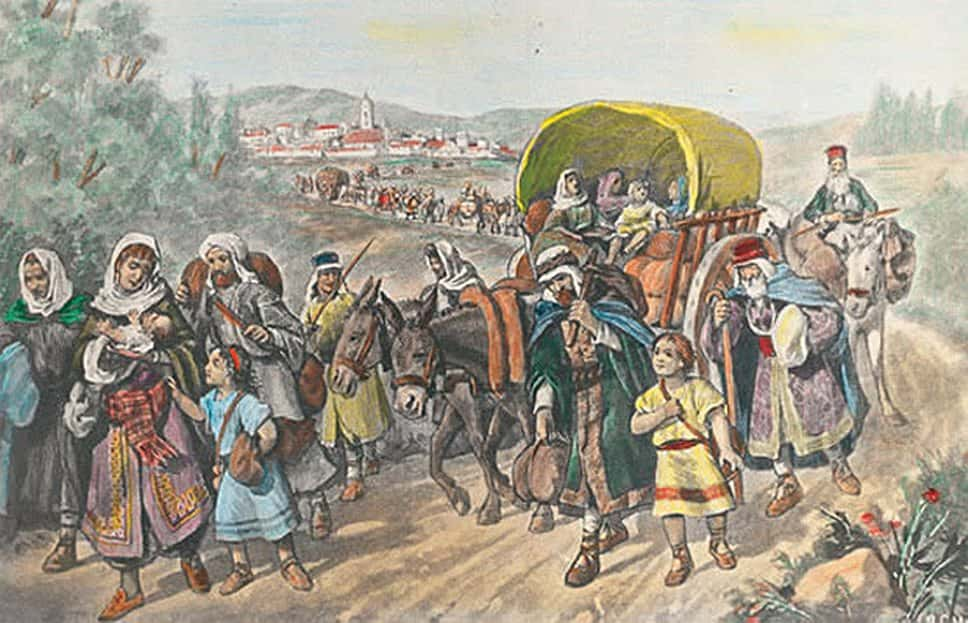
28. Sanctioned Thievery
As stated before, the Spanish Inquisition got its spending money from confiscating the possessions of those found guilty. This wasn’t something subtly done, either. Contemporary accounts made it clear that the Spanish people could see right through the prosecutions and seizures of wealth. To this day, we can only guess at the untold fortunes that were plundered by the Inquisition and their associates.
27. Squealers!
Whenever the Inquisition came to town, they would read an Edict of Grace to the church-goers after Mass. This edict read out the list of heresies and encouraged anyone who knew anything to come forward. They said that anyone who gave them information was simply "relieving their conscience." We've got another word for it today: snitching.
26. Persecuting Protestants
The Spanish Inquisition didn’t just focus on non-Christians. With the emergence of Protestantism across Europe, the Spanish Inquisition worked hard to keep it from taking root in Spain. Other Christian sects which differentiated from Roman Catholicism were also targeted in the 16th and 17th century.
25. Poe Did Them Wrong
Edgar Allen Poe’s The Pit and the Pendulum is one of the most famous modern stories featuring the Spanish Inquisition. It details a man’s horrific journey of being tortured by the Inquisition, including by such devices as a huge, sharp pendulum swinging back and forth over his body. However, these devices have no historical evidence to back them up. Still spooky though.
24. No Business in the Bedrooms of the Nation, Usually
The Spanish Inquisition tried nearly 500 cases of sodomy. Of these cases, only a few were allegedly persecuting two consenting adults, while 20% of them purportedly involved child abuse. The number of death sentences carried out was fairly low for this group, as the church would only bring death sentences against the crime of sodomy if the accused was over the age of 25, and many of the people involved fell below this age limit.
23. The Corsican Ogre
While several factors contributed to the decline of the Spanish Inquisition, the first example of it being abolished came, surprisingly, from Napoleon Bonaparte, but not because he of his benevolent nature. When he invaded Spain, Bonaparte put his brother, Joseph, on the Spanish throne, and sought to wipe out the Papist traditions, keeping with the views of the French Revolution. After the French were defeated in Spain, the Inquisition was restored, along with Ferdinand VII, in 1814.
22. Their Last Hurrah
The Spanish Inquisition limped on for a bit longer after 1814, under the official name "Congregation of the Meetings of Faith." The last person executed by the organization was the schoolteacher Cayetano Ripoll; He was hanged in Valencia on the 26th of July 1826. The order was completely abolished on July 15, 1834.
21. It’s Just an Opinion!
Blasphemy could cause people to face the cardinals of the Spanish Inquisition, and it could have been as simple as stating that unmarried sex was not a sin. Even members of the clergy were brought forward for saying the wrong thing. However, as easy as it was to get accused of blasphemy, the punishments for it weren’t as extreme as the Inquisition’s punishments for other crimes.
20. The Witches’ Lobby Rests Their Case
Surprisingly, the Spanish Inquisition was actually far less gung-ho about punishing witches than the rest of Europe was at the time. True, people were burned for witchcraft, such as at Logrono in 1610, but the pursuit of witchcraft was usually considered a secular responsibility. Moreover, the Inquisition was reportedly skeptical about witchcraft, believing it that it didn't actually exist and was merely superstition. Tell that to my buddies Harry, Ron and Hermione.
19. Find a Substitute!
Occasionally, rather than carry out an execution, the Inquisition would have someone burned in effigy. Essentially, a figure would be made to represent the person, and that would be burned instead of them. Sounds like a preferable option right? Well, not exactly—people were most often burned in effigy when they had died during the torture process and were never able to be properly executed.
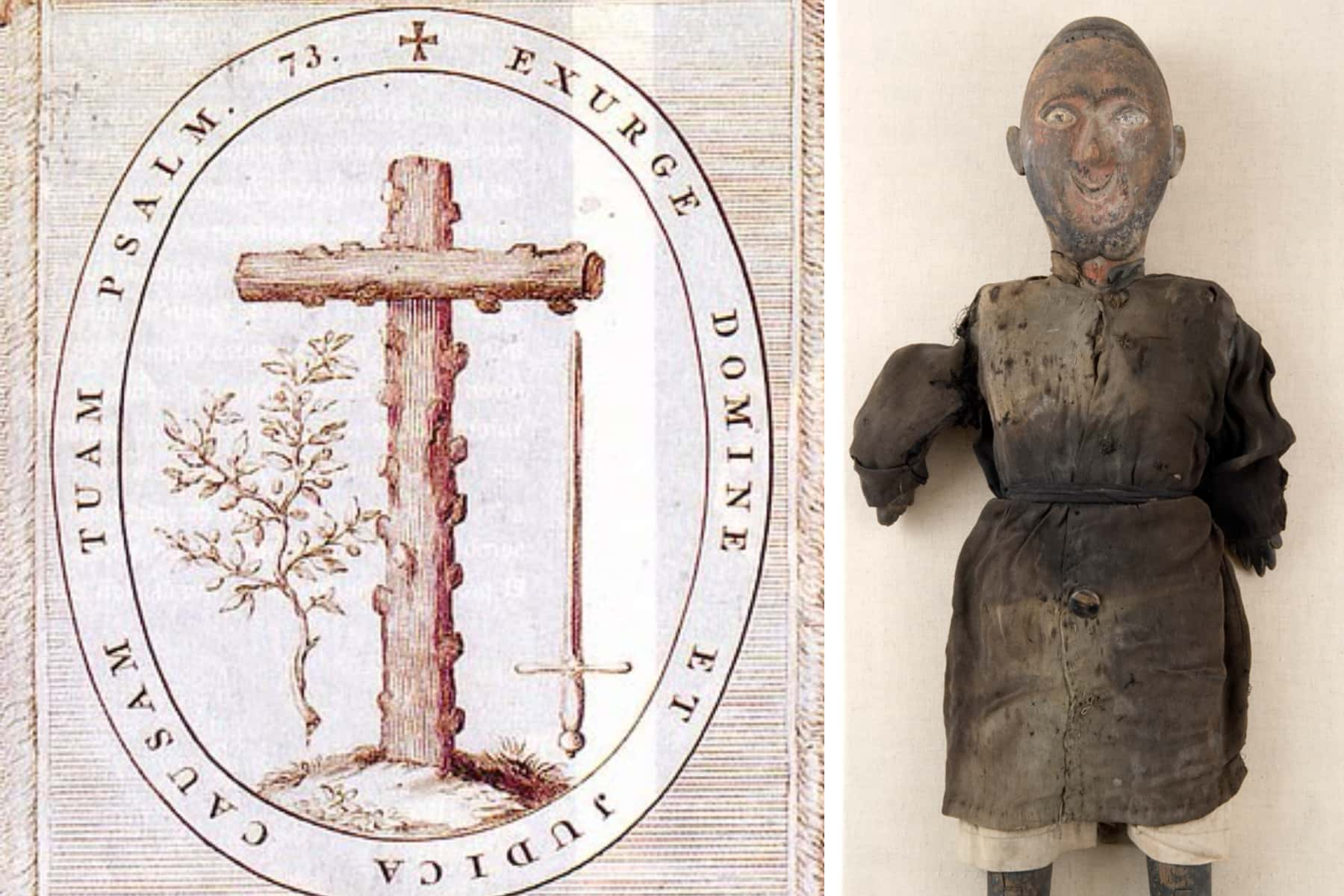
18. Let’s Visit Peru
When the Inquisition was established in the Spanish colony of Peru, it carried things out a bit differently than back home in Spain. For one thing, the Peruvian Inquisition depended on the crown for its authority to carry out judgements and punishments. And while the Spanish Inquisition was burning rich people to get their property, the Peruvian Inquisition was satisfied to pick on the lowest-ranking people in their society. This included people of African and indigenous descent, women, and people of Protestant faith who (ironically) were fleeing persecution in Europe.
17. Civilizing New Spain??
The Inquisition was also installed in Mexico for much the same reasons as in Europe. Surprisingly, this meant that the native peoples of Mexico were often left out of the Inquisition’s trials. For one thing, the Inquisition was still furiously trying to root out Judaism, and for another, several of the friars sent to convert the natives to Christianity actually tried to protect them from being persecuted, as it was vital to show them kindness in order to persuade them to convert. Unfortunately, this kindness extended to the indigenous was drowned out by, you know, the countless atrocities committed against them.
16. Don’t Tread on the Dutch
When Spain still controlled the Netherlands, their local branch of Inquisition spent part of the 16th century ruthlessly hunting down the Calvinists and Mennonites whose numbers were rapidly increasing. One Inquisitor, Peter Titelmann, was so famous for his cruelty and lack of mercy that he was described as having a “demon-like Goblin temperament.” Not just Demon-like, not just a Goblin, but a Demon-like Goblin. Ouch.
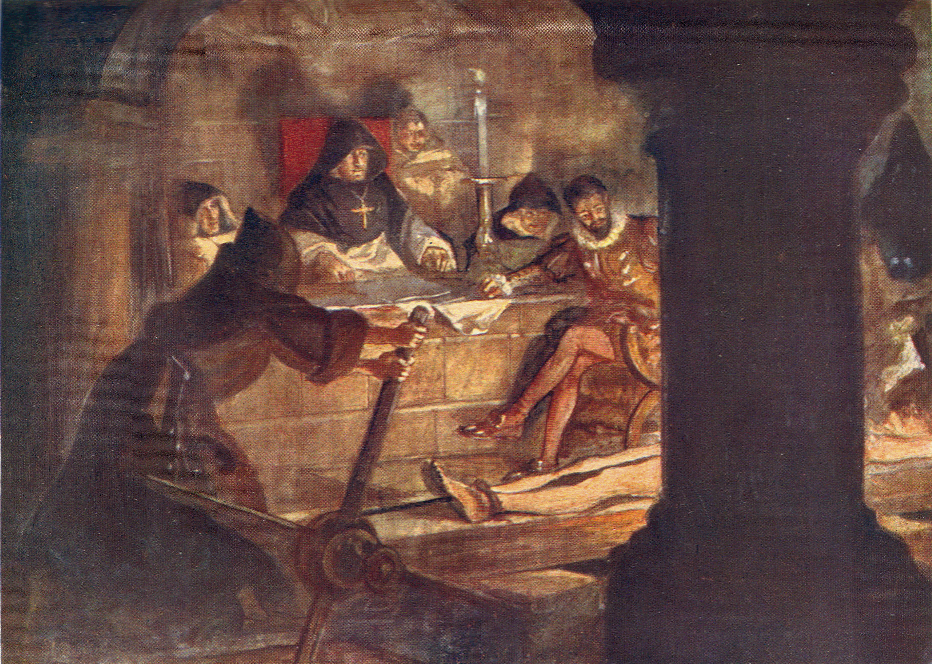 main lesson
main lesson
15. Harsh Critic
Legendary French writer Voltaire, who died before the Spanish Inquisition was disbanded, was deeply opposed to it in his lifetime. His writing, particularly in Candide, painted a harsh picture of the Spanish Inquisition as the embodiment of religious intolerance in Europe.
14. We’ll be Your Bogeymen
Not surprisingly, Protestant countries eagerly pointed out the Spanish Inquisition as proof of how monstrous the Catholic faith was, and Gothic novels out of these countries frequently focused on the subject. These novels (such as Matthew Gregory Lewis’s The Monk) treated the Inquisition as a monstrous weapon of dread and authoritarianism. Sounds about right.
13. In the Navy
One crime which the Spanish Inquisition frequently persecuted was bigamy, also known as being married to two people at the same time. Allegedly, the main punishment for a man found guilty of bigamy was five years as an oarsman in the Spanish navy.
12. Torture Rules
Although torture was allowed in the eyes of the Church, there were severe restrictions on what kind of torture could be carried out. The Inquisition was forbidden to use any methods which led to permanent physical damage or which shed blood.
11. The Spice of Life
The three most frequent methods of torture used by the Inquisition were the garrucha, the toca, and the potro. The garrucha involved a person having their arms tied behind their back and then being suspended from a rope by their wrists. This would usually painfully dislocate the shoulders, especially if weights were attached to the person. The toca was an early form of waterboarding, as it was meant to give the illusion of drowning a person without actually killing them. The potro you might already be aware of: it was better known as the rack, where the accused were stretched by their limbs until they either confessed or were dismembered.
10. Intolerance of Islam
What Torquemada did against the Jewish people of Spain, Cardinal Jiminez de Cisneros did against the Muslims. When Cisneros was named Grand Inquisitor in 1507, he launched a campaign against those who remained in Spain after the war with the Moors. In 1526, the Islamic religion was forbidden, and Muslims in several Spanish territories received forced conversions. Some 300,000 Spanish Muslims were banished from Spain by 1614.
9. They Also Faked the Moon Landing!
In the 18th century, the Spanish Inquisition declared that Freemasonry was heretical. They denounced it for being a secret group which promoted atheism and treason. In 1815, the Grand Inquisitor launched a purge of Freemasons, presumably because they were running out of people to persecute by that point.
8. Also Known as the “Frollo Strategy”
One particularly grim story about the Spanish Inquisition’s abuse of power involved an Inquisitor named Diego Rodriguez Lucero. According to historian Manuel Barrios, Lucero lusted after the daughter of a man named Diego Celemin, but neither her parents nor her husband appreciated the Inquisitor’s interest in her. Lucero’s reasonable response was to have all three sentenced to death by fire, take the girl as a mistress, and even have a child by her.
7. Nobody is Safe!
Bartolome de Carranza was not only a member of the Dominican friars, he was also the archbishop of Toledo. Neither fact stopped the Spanish Inquisition from imprisoning him for over 17 years for heresy.
6. What’s a Little Pain?
The use of torture in the Spanish Inquisition has become such a large part of how it’s remembered that it’s easy to find exaggerations of the truth. Based on historical records, torture was never used as a form of punishment, but only to obtain confessions. While the full truth will never be known, it’s been estimated that between 1575 and 1610, the court of Toledo tortured a third of the people who were put on trial. Now, admittedly, that's a smaller proportion than one would assume, a more chilling side of it was that torture was carried out against anyone, regardless of age or sex.
5. I Didn’t Expect That!
Contrary to what Monty Python taught us all those years ago, the Spanish Inquisition was very much expected. They would give the accused thirty days notice before they arrived. This was meant so that the accused would have a chance to prepare their cases, but we like to think it also allowed them to make a run for it before the cardinals came knocking.
4. It was a Phase!
Believe it or not, the Inquisition is still technically active today. At least, a papal organization that carried out the Inquisition is. Though it has gone through many name changes over the years, the modern Congregation for the Doctrine of the Faith is the same organization that was once called the Supreme Sacred Congregation of the Roman and Universal Inquisition.
3. We All Get Our Start Somewhere
Interestingly, one of the most recent men to serve as Prefect of the Congregation for the Doctrine of the Faith (try saying that fast six times) was a fellow named Joseph Ratzinger. You might know him better as Pope Benedict XVI.
2. Watch Out, Scrooge!
Incredibly, the Spanish Inquisition did not have a budget from either the Pope or the Spanish monarchs. It relied on seizing the assets of those found guilty of heresy for funding. As a result, many rich men were prosecuted by the Inquisition. The situation was obvious at the time, too. Charles I of Spain was once petitioned by a recent Christian convert, who warned the monarch that “if [the accused] do not burn, [the Spanish Inquisition] do not eat,” implying that the Inquisition had good reason to prove any accused guilty, whether or not they actually were.
1. Thanks a Lot, Dominic
Although the Spanish Inquisition was run by Spain and had the support of the Catholic Church, it was a specific order of monks within the church who did most of the actual work. The Order of Preachers, also known as the Dominicans, was formed to oppose heresy and preach the gospel, and they took up the brunt of the work in the Inquisition. They were so zealous in their dedication that people began referring to them with the pun name Domini canes, which translates to "Hounds of the Lord" in Latin.


